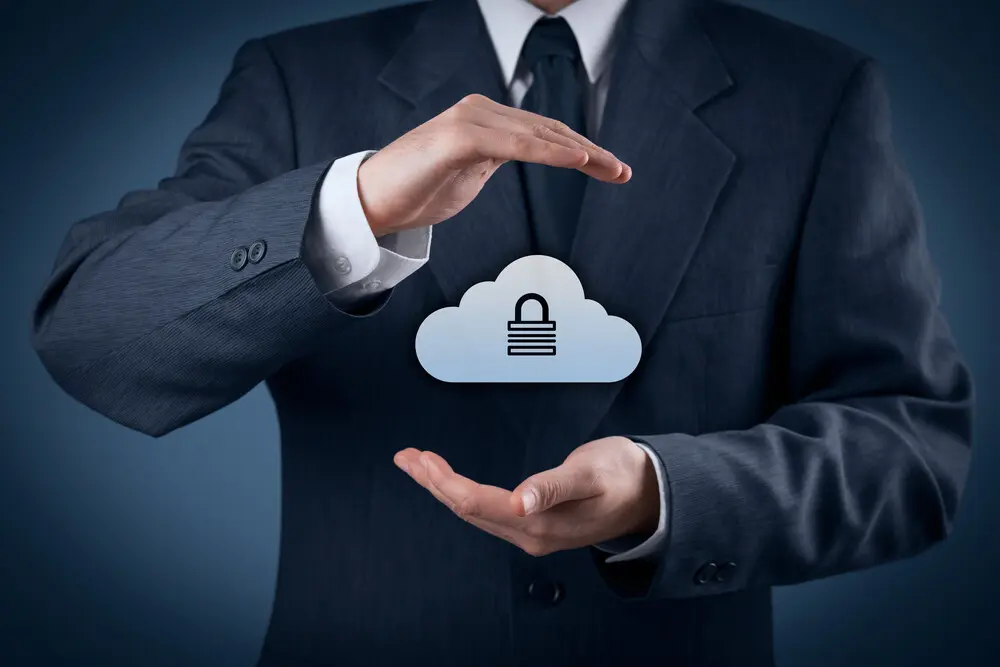There are a number of advantages to moving your data to the cloud. You no longer have to maintain a physical server in your office, you can access your data from anywhere, and you can quickly scale up or down as needed. However, you do have to keep your data secure. While it’s true that your cloud provider will employ their own security, that only keeps the data safe from unauthorized access. If someone hacks a user account or a disgruntled employee decides to steal data before leaving, this security won’t help. To minimize these risks and protect your data more thoroughly, you need to employ cloud security best practices. Let’s take a look at some of these best practices and how they will protect your business and your data.

You Have to Secure Access to Your Cloud
While your cloud provider will implement and maintain security on their servers to protect your data, it’s your job to secure access. This is why working with a managed IT services provider in the Bay Area for cybersecurity is so important. Think of this security as a wall around your castle of data with a large door in it. Unauthorized people can’t get over the wall, but anyone with the key can walk right in. You have to be careful who has that key.
There are a couple of different things you need to do to secure access to your cloud. First, train your employees to use strong passwords. Second, implement a form of two-factor authentication. This security tool requires employees to enter a code in addition to their password. This code may come via text message, email, or even over the phone. Even if a hacker has a user’s password, they can’t access their account without the code.
Third, all employees should go through a cybersecurity training program. This should teach them how to recognize phishing scams, how to recognize fake websites, and what to do when they suspect they’ve been hacked. This training should also cover the role of user-owned devices that may have access to your website. With proper training and two-factor authentication, you can greatly decrease the number of unauthorized people who have access to your data.
Limit Access to Sensitive Data Is Cloud Security Best Practices #1
Limiting access to your servers is only the first step in protecting your data. Your next step is to consider who needs access to what. Once you give someone the key to the wall around your castle, can they walk into any room they want? Many businesses give everyone access to everything because it’s an easy option. It’s also the least secure. Why would a receptionist need access to sales data? Does someone in product testing need to access private customer data? If someone doesn’t need certain data to do their job, don’t give them access to it.
This adds more layers to your most sensitive information. By locking it behind permissions and employing 2FA practices, you’ve put yet another wall around it. However, there are yet more steps you can take to further protect your data. First, you should reassess who needs access to this data periodically. If someone no longer needs access, remove it from their account. If someone has left your company, their access needs to be cut off right away.
Second, don’t give someone permanent access if they only need data for a special project or for a short period. Instead, provide them with one-time or short-term access. Once they’ve completed the project, they should have their access revoked in a timely manner.
Remember, your cloud provider or MSP doesn’t know who needs access to data. Only you do, so it’s up to you to communicate this. Giving access to everyone is easy, but it’s going to leave you vulnerable. Even if none of your employees is vindictive, there are always accidents. Data can be erased with the slip of a finger, and if you have no cloud backup, it can be gone forever. When access is limited, it reduces your risk of falling victim to human error.
Provide Security Education

All of your employees, regardless of their position or experience, need to go through cybersecurity training when they join your company. You should also provide refresher training and training on new threats as they occur. This will ensure that your team knows how to identify phishing emails, how to create strong passwords, and what your own cybersecurity policies are. This training should also stress the importance of security and why these policies are in place. By explaining why security is important, your team is more likely to follow your policies because they will know that they’re not arbitrary rules. They have a purpose.
Understand Your Industry-Specific IT Requirements
Every industry has its own specific data security regulations that you must follow. For example, any business that touches personal medical information must take great care to keep that information secure and private. Those in the financial sector have to follow similar regulations about information such as bank accounts. You will need to make certain that you, your IT team, your cloud provider, and any others you work with fully understand what regulations apply to your industry and that you’re following all of them.
What if you don’t? You put your data at risk, plus you leave yourself open to being fined if you’re ever audited. Failing to follow established regulations and best practices in certain industries can result in fines and other penalties so severe that you have to close your business.
Have a Dedicated Administrator Account
Who has administrator rights to your server? If you can name several people, you’re not following established best practices. You should have one dedicated administrator account that one person knows how to access. This account should have a strong password and make use of two-factor authentication. This account should only be used when something must be done at the administrative level. It’s not meant for daily use.
Again, it’s much easier to simply give one or more people administrator rights on their personal accounts, but that raises a number of risks. If their account is hacked, the hacker now has full access to everything. They can create their own accounts, lockout whoever they want, and go through all of your data. Even if nothing malicious happens, with multiple administrator accounts, it’s much easier for human error to cause data to be lost or other unintentional issues.
Call 911 PC Help Today to Implement Cloud Security Best Practices
Following these best practices will help reduce your risk of having your cloud breached, which in turn protects you from the fallout a data breach leads to. If you’re uncertain what the current cloud security best practices are or what regulations you need to follow, 911 PC Help is here to assist you. Contact us today to learn more.

